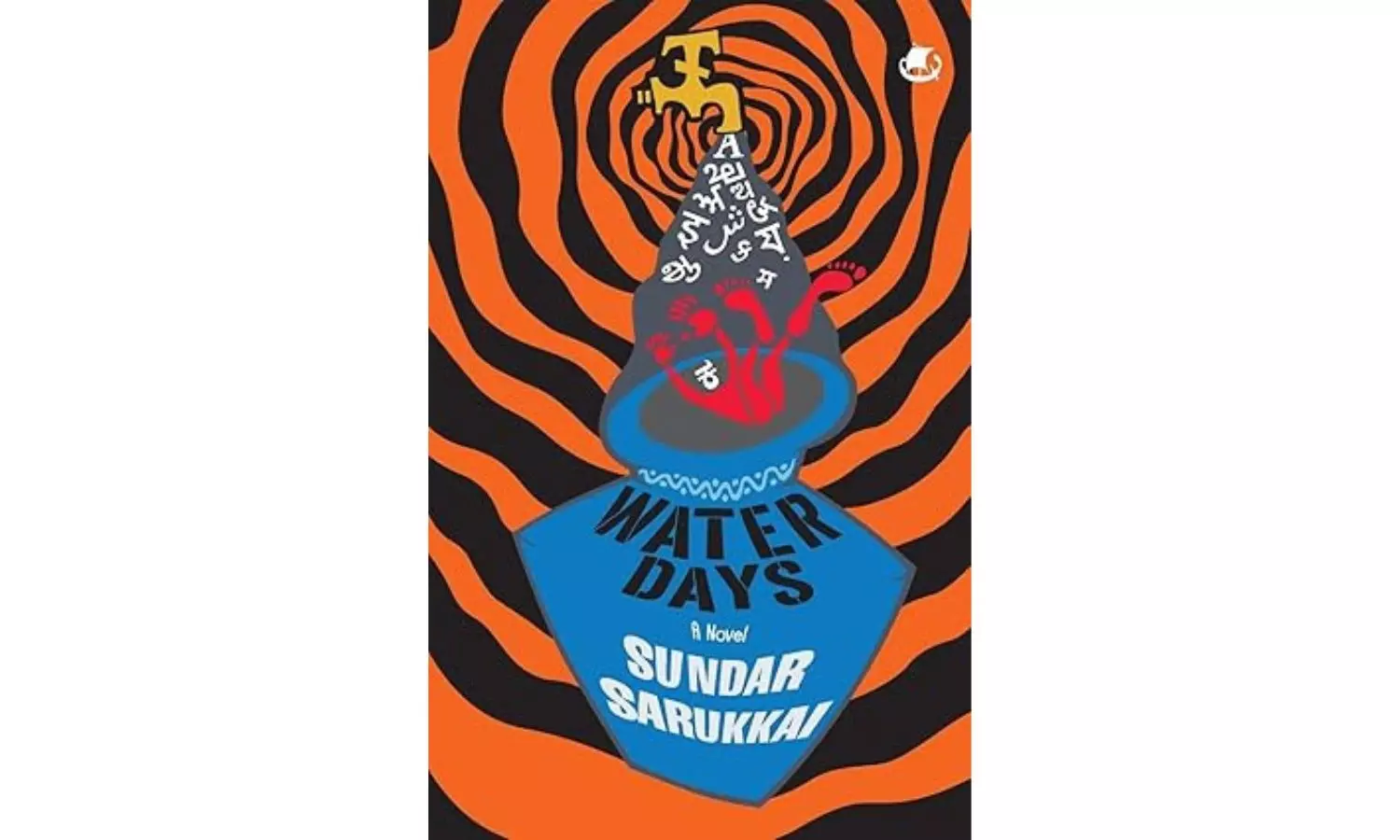By Sujit Bhar
Copyright deccanchronicle

As Bangalore was transforming from a sleepy garden city to a bustling IT hub, its residents were forced to stumble around almost alien emotions and memories, through a slush of looming poverty and within a social fabric stretched so tight it trembled with every waking hour. In the midst, Sundar Sarukkai’s Water Days presents the death of a young girl, a suicide that exposes the rusting core values of a society that is plebeian in beliefs, yet Brahminic in aspirations. Sarukkai depicts Raghavendra as a man resting on beliefs as worn as pebbles on a sea shore, as his wife Poornima shows a side of spunk, fire and defiance. As a philosopher Sarukkai smoothly wades through thick, waist-high emotions and observes from the water tap, where the trickle arrives on some allotted days, leading to human encounters that aren’t always civil, though always revealing anomalies in relationships. The rain, often as persistent as a nagging pain, adds to the scenario, sometimes making the crumbling roads as difficult to navigate as the diffused thoughts of Raghavendra. It is a bleak setting, but the slow-paced engagement with memories, slipping identities and metaphors is presented by the author in a tongue that is steeped in emotion, but precise, deliberate, slow, yet bereft of thoughtless melodrama. The prose rises above the apparent chaos of the mind, in a rhythm that pushes the story beyond a mere narrative to a throbbing heart. Eloquent observations often expose the societal aberrations that may have led to the death of the unfortunate young girl. Within a conversation, post the death, comes this comment: “’Poor girl,’ Marimuthu said, trailing ends of his moustache and indicating the metal plank inside the van. Empty and waiting for a body to occupy it. He pointed at the emptiness inside the van. Raghavendra looked at the plank and thought he was pointing to that. But Mari said, ‘See, space is like this — this emptiness — perpetually waiting for a body to possess it. Living or dead, what does it matter?’” These are philosophies that may be dismissed as pedestrian, but surely carries the weight of disturbing experiences that shape society. The language is poetic, brimming with emotion as the reader slows down to pay his respects to the silence that intervenes. The novel is as intricate as the evolving cityscape, yet deep within it rests the simplicity of lives that resist, lives that may yearn for times that were less complicated. Raghavendra’s ambition of starting a detective agency remains in stark contrast to what his inner self desires: a grocery store. These contrasts are interesting, quite like the flow of water, which times itself in ways that neighbours become alien, as suspicions grow through strong bonds and, ultimately, society moults, emerging with a shinier skin. This is a book to absorb, a book for those who value literary introspection. The bonus lies in the nuanced emotional landscapes. Water Days By Sundar Sarukkai Tranquebar/Westland Books pp. 320; Rs 499



